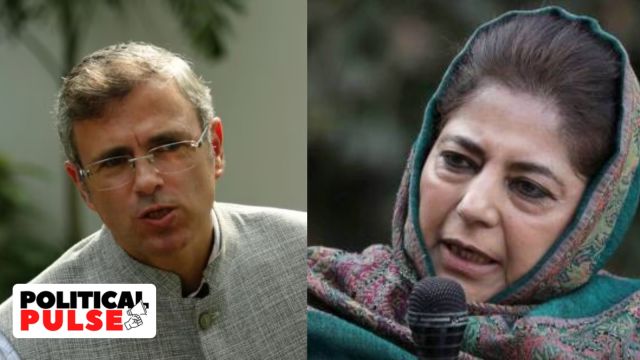HOURS before the Election Commission announced three-phase polls for Jammu and Kashmir on Friday, the J&K administration issued a series of orders making key transfers in the police and civil set-up, including appointing a new intelligence chief of police, a move noted by political parties.

The most consequential of these orders came in July, when the Union Home Ministry amended the Jammu and Kashmir Conduct of Business rules, vesting critical powers with the Lt Governor, who anyway holds considerable authority given that J&K is now a Union territory.
Story continues below this ad
After the amendments, the Lt Governor holds more powers with regards to appointments and transfers of senior civil and police officers, including the IAS and IPS, while powers for financial concurrence appointments and decisions pertaining to key departments like the police, public order and Anti-Corruption Bureau now lie with the gubernatorial post rather than the elected chief minister.
Any budgetary provisions by the government consequently need concurrence from the Lt Governor now.
The amendments also grant powers to the Lt Governor to appoint the Advocate General and law officers, and give him or her a say in decisions regarding prosecutions and sanctions.
The National Conference (NC) and Peoples Democratic Party (PDP) had opposed the amendments, saying these would “disempower” the people of J&K, while the Congress termed it as “the murder of democracy”. Even the Apni Party, which is seen as close to the Centre, urged all parties to shun differences and unitedly protest against the move.
Story continues below this ad
In an interview with The Indian Express earlier this month, National Conference vice-president and former chief minister Omar Abdullah reiterated that he would not contest the Assembly elections, attributing it to the changes that had been introduced. “I have been the CM of a state, the CM of the (once) most empowered state. I can’t see myself in a position where I would have to ask the LG for appointing my peon,” Omar said.
In another crucial move, on July 31, the Administrative Council headed by Lt Governor Manoj Sinha gave proprietary land rights to refugees from then West Pakistan who settled in J&K 70 years ago, and who were not considered state subjects till the abrogation of Article 370.
On Friday, the Administrative Council came up with another order giving the refugees from then West Pakistan proprietary rights on evacuee property, or property belonging to those, mostly Muslims, who shifted to Pakistan or Pakistan occupied Kashmir during Partition.
Before that, on June 8, the Administrative Council approved transfer of over 2,500 kanals of land for development of industrial estates in J&K. Land remains a sensitive issue in the erstwhile state, which fears an influx of “outsiders”, further diluting the special status once enjoyed by it.
Story continues below this ad
In January, in another order that was objected to by leaders in J&K, the administration entered into an agreement with the Rajasthan Urja Vikas and IT Services Ltd for off-take of electricity from the Ratle power project in Kishtwar for 40 years. The political leaders questioned the need for this when the Union territory was itself short of power.

































